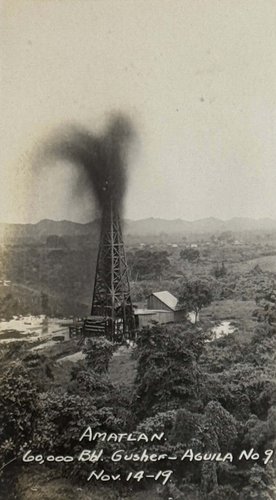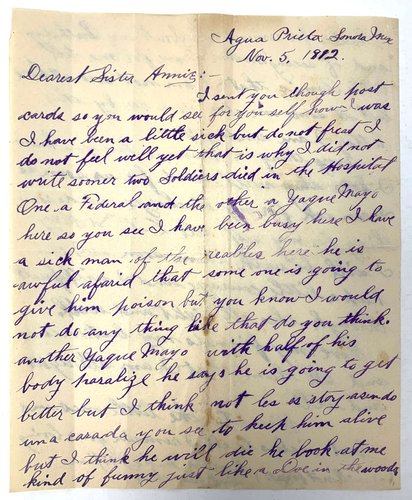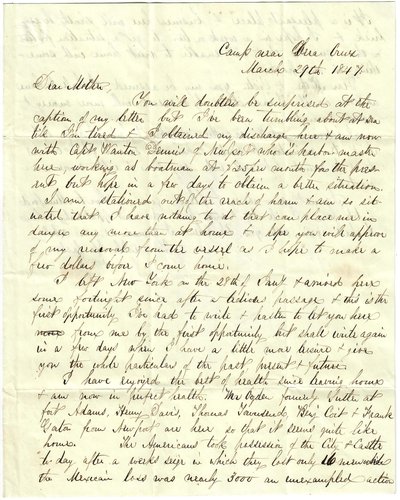



#MA53
March 1847
Quarto bifolium ca. 24,6x20.2 cm (9 ½ х 7 ¾ in). 3 pp. Brown ink on yellowish wove paper. Blind-stamped papermaker’s monogram in the left upper corner of the first page. Addressed, stamped, and sealed on verso of the last leaf. Fold marks, slightly age-toned, but overall a very good letter written in a legible hand.
A historically important original autograph manuscript letter written by Corp. B. Wingate the very same day the siege of Veracruz ended with Mexico’s surrender, triumphantly writing to his folks back home in Indiana about “one of the greatest battles ever won by American arms,” talking about Mexican soldiers flocking to General Zachary Taylor, the next US President, and “beging [i.e. begging] for something to eat,” fiercely stating that the city of Mexico “must hear the barking of our buldogs [i.e. bulldogs] before walls,” and enthusiastically predicting the near end of the warfare after the American capture of the “third strong place in the world;” also mentioning General Winfield Scott whose heroism “must gane [i.e. gain] for the commander the name that will last for ages to come.”
Dated 29 March 1847, this first-hand, triumphant account of the siege of Veracruz offers a unique insight into the decisive battle of the Mexican-American War.
The battle of Veracruz, a twenty-day siege of the key Mexican beachhead seaport, was a pivotal stage of the Mexican-American War. The American army undertook its first successful amphibious landing when under the command of Gen. Winfield Scott, a force of 12,000 landed three miles southeast of the city on March 9, 1847. After an artillery bombardment and a twenty-day siege, the town’s outnumbered garrison surrendered to the US troops. Having secured Veracruz, Scott’s army launched the war’s final thrust: a six-month, 265-mile fighting march to the “Halls of Montezuma” at Mexico City.
This patriotic letter was written by Corp. B. Wingate, an American soldier and participant in Winfield Scott’s siege of “the third strongest place in the world,” only a few hours after the end of the battle.
The author addresses the text, full of grammatical mistakes, to his folks (M.H. Wingate and Miss E. Wingate) back home in Lexington, Scott County, Indiana, and recollects “one of the greatest battles ever won by American arms.” Wingate talks about the devastating loss of the Mexicans and proudly states, “thare [i.e. there] is scarcely an American whose heart would not have leaped with joy this morning.” In the next passages, the author details the number of casualties, praises the strength of the US troops, enthusiastically predicts the near end of the war, and writes about the immense destruction produced by the hostile army of “proud America.” The author claims that Mexico City “must hear the barking of our buldogs [i.e. bulldogs] before walls” and triumphantly talks about Mexican soldiers begging General Zachary Taylor for something to eat. Wingate also mentions Winfried Scott, whose heroism in the siege of Veracruz “must gane [i.e. gain] for the commander a name that will last for ages to come.” Near the letter's close, the author expresses his desire to march further to the capital city and menacingly notes, “commone sence will tell them [the Mexicans] to avoid that if possible.”
Overall, a historically important original autograph manuscript letter from a soldier on the front lines of the war vividly describing a crucial victory of the United States in the Mexican War.
The text of the letter (original spelling and punctuation preserved):
“I take pen one more to give you the nuse I am tolerabel well in body and vary well in spirits for I trust that thare is scarcely an American whose heart would not have leaped with joy this morning for to have seen the stars and stripes of proud America awavering in the brez over the citty and castle of Very Cruse the third strones place in the world. I wrote James Powers a letter on the 25 while the thunder of the cannons of our batterys was roaring like high heavens most turrifick thunder storms. But about the time I was sealing it they seased their noise and have bin motionless till the present day when they commenced firing salutes uppon all sides. I am not able to give you the exact loss on wither side but report sais that the Mexican loss is fifteen hundred ours about one hundred encluding killed and wounded. This is cirtainly one of the greatest battles ever won by American arms since the days of the revalution and must gane for the commander a name that will last for ages to come. I am unable to give you the turms of the surrender. I am of the opinion that the Mexican wore is near to a close for I can’t see why they will hold out longer when defeat afte defeat awaits them on all sides in every engadgement they are unsuccessful having all their strong holes taken from them loosing their souldiers and having their hole terrytory clad in ruin. You have no ydy of the distruction produced by having a hostile army marching through it. We hear that they are leaving the Mexican army and flocking to Gen. Taylor beging for something to eat if this be the fact the wore is over, but if the hold out longer the citty of Mexico hurself must hear the barking of our buldogs before walls, but I think that commone sence will tell them to avoid that if possible.That is a trip that I would like to take a march through the intery of the country to the capital, but if the army moves for that place it is uncertain wheather the Rifle Regt goes or not for I under stand that thare is an order to have us remounted and I supose they will send us back to the states to - . The strenght of Scotts command at this time - of twenty thousand man and the health in the army is vary good at this time.
I received a letter this day from Ann and William dated February the 10 in which I find the are all well though they had not herd any thing from you lately their leter i should post pone writing to them at present untill I learn what is to be don next. I shall cut this letter shorter than yousual. I hope when you receive this you will write immediately for the letters that I have bin receving - are of old date but it is said that it is better late than never but I am - that I must close nothing more but - your affectionate son and well wishes until death.”











